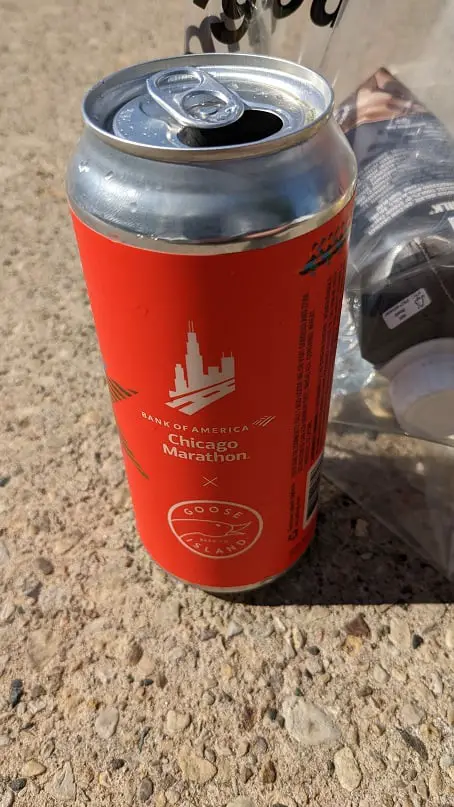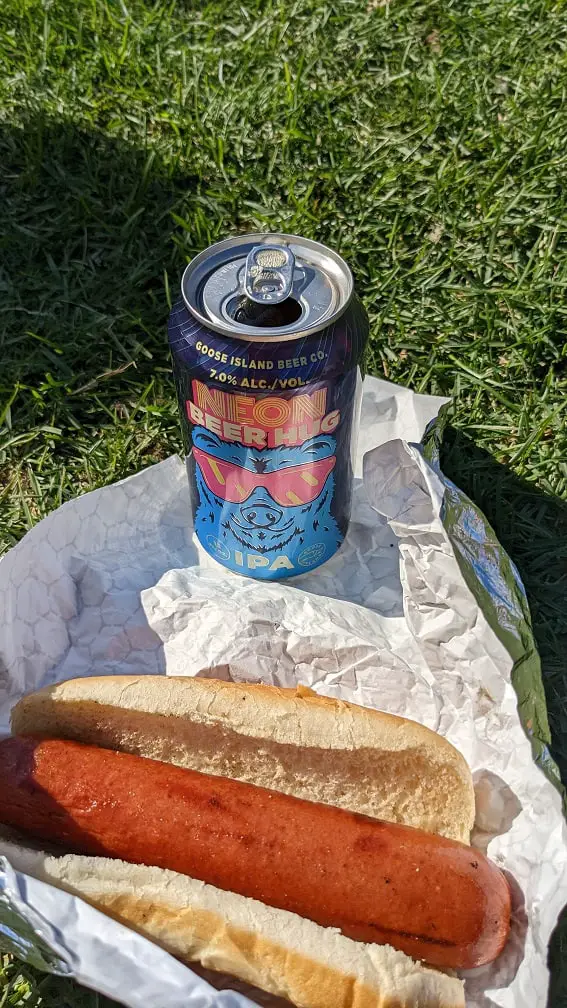I burn about 4000 calories on a 20-mile long run while training for a marathon. On those days, I make sure I replace those calories!
New runners will notice an increase in appetite when they start running. It takes a little time to adjust to running and knowing what you need to eat to feel satiated.
The trick is to have good food available when you need it. That way, you won’t overeat food that’s bad for you.
In this article, I look at things you should eat before, during, and after a marathon. Based on my experience, I then looked at some things you shouldn’t eat!
Table of Contents
What Should I Eat While Training For A Marathon?
Eating healthy and balanced meals is essential to ensure you get enough nutrients and energy to complete your training runs.
Eat everything, but pay special attention to foods that give you essential carbohydrates, fats, and proteins — lean meats, whole grains, fruits, vegetables, nuts, and seeds.
Focus on eating high-quality carbohydrates throughout the day, such as rice, whole wheat bread, oats, or quinoa; healthy fats like avocado or olive oil; and lean proteins, including fish, eggs, and chicken, for muscle repair benefits.
Don’t forget about fresh fruits and vegetables! Fruits add essential vitamins like C and A, which are needed for a robust immune system.
Make sure to stay hydrated by drinking plenty of water alongside these nutrient-rich foods for an optimal pre-race diet.
What To Eat On The Day Of The Marathon?
Breakfast is essential on a day of running a marathon. It’s best to stick to what you know and not try anything new or fancy, as that could lead to some unfortunate stomach problems while out on the course.
Focus on carbohydrates such as oatmeal, granola, bagel, or toast with some fruit and nut butter.
Ideally, this should be eaten at least three hours before the race, giving you plenty of time for your food to be digested. Hydration also needs to be a priority, so sip on water throughout the morning.
It would be best if you practised this morning routine during your training. You don’t want any race day surprises.
What To Eat During A Marathon?
Gels are what most people go to for marathon fueling.
It is essential to test different types before race day to see how they make you feel.
I ran two marathons (Berlin 2021 and Manchester 2022) using the Maurten gels. It was only after Manchester that I realized how bad they made me feel. Berlin 2022 was hot, and I felt rough; I put it down to the heat. However, six months later, in Manchester, England, I felt the same; I realized the Maurten gels made me feel quite unwell.
I switched brands to Honey Stinger, and I’ve not looked back!
You may find gels out on the marathon route if it’s been sponsored by gel manufacturers. If it’s different from the brand you are used to, do not be tempted to try one, it could ruin your race!
What Should I Eat After A Marathon?
Whatever you want!
After running a marathon, it is essential to replenish your body with the proper nutrition as quickly as possible.
It is recommended to eat within 30 minutes – 1 hour of finishing. Eating good quality carbohydrates such as whole grain toast or an energy bar, followed by a protein-filled snack like grilled chicken or fish, will help your body recover.
Although it may not be the best option in recovery, many runners are tempted to celebrate with a beer after they finish the race – and there’s nothing wrong with indulging; make sure you include some food first!
After the Chicago marathon in 2022, the organizers were giving away Goose Island beers! I had that and a few more at the 27-mile event. I lay on the grass, had a burger, and enjoyed the sunshine.
Maybe not an optimal post-marathon meal, but I had a great time!

Final Thoughts
Marathon runners understand the significance of good nutrition for their sport, so the answer to whether they eat a lot is quite nuanced.
While their dietary needs become increasingly important as their activity levels increase, they strive to fuel themselves rather than overdo it. Before running a marathon, runners pay close attention to what they eat and are diligent about avoiding sugar if possible.
During the race, they focus on hydrating and eating small amounts of carbohydrates (gels) but not exceeding recommended guidelines.
After crossing the finish line, they must refuel with foods that provide easily digestible carbohydrates, healthy proteins, and beer!
Tracking these quantities through MyFitnessPal can help marathoners maximize their performance while working on an intelligent nutrition plan.


